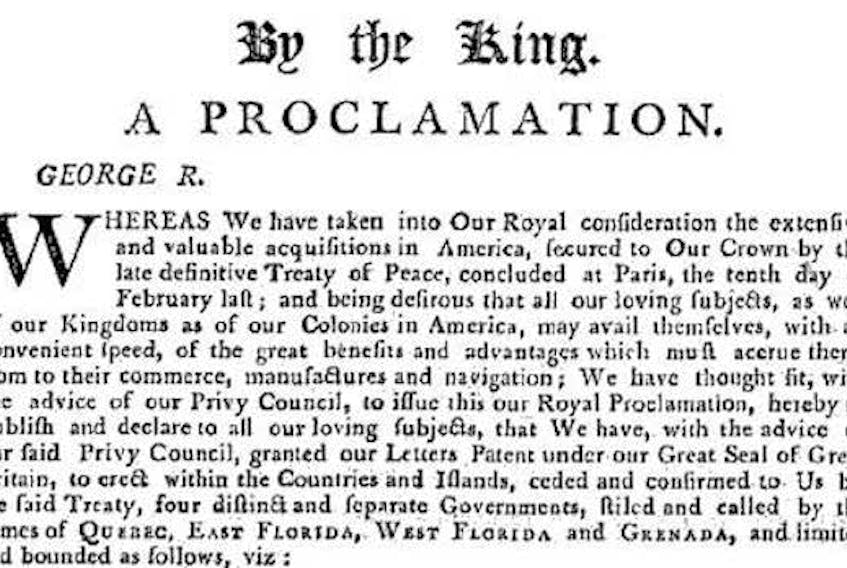BY JOHN PALMER
GUEST OPINION
John Joe Sark’s opinion article is very disturbing as it suggests that title to land by all landowners on P.E.I. is invalid, as the Island was never ceded to the Europeans by the native community. The Mi’kmaq community on P.E.I., including Dr. Sark, have always been clear in their belief that the Island belongs to them and the 145,000 or so islanders now living here are effectively trespassing on their land.
His article is written as a clarification of the source of the term unceded lands, going back to the Royal Proclamation of 1763 by King George III. It is very current in the context of the dispute concerning the Mill River Resort.
However some vital pieces of information were not included in his clarification.
First, The Royal Proclamation was made explicitly for the huge territory west of the Appalachians that were acquired by the British following the defeat of Nouvelle France and had no application in the Maritime region.
Second, the British Crown also acquired Ile St. Jean (now P.E.I.) with the defeat of the French, and King George decided to settle the Island as a farming community with British landowners owning the land, after the Acadian community was forcibly expelled. Samuel Holland was sent here in 1764 to survey the island and partition the land into parcels for distribution to the British gentry in a lottery in London. This subdivision of P.E.I. made absolutely no provision for the few hundred “Indians” as they were described, who were living on the island. The unfortunate result of this decision was to leave the native people with no lands to live on.
Third, the plight of the small native community increased as large numbers of European settlers came to develop the lots into farms, so Governor Fanning proposed that Lennox Island, which is in Lot 12, be set aside for Indian families to live as farmers and fishers. This occurred around 1800, though the native community held no title to it. Many native families were also not prepared to adjust to a sedentary life. It was not until 1870 that Lennox Island was purchased by British benevolent groups through private donations, and was subsequently granted to the native families living there. Successive colonial governments on P.E.I. were not interested in buying back lands for the indigenous community.
Fourth, more recently, in 1973 Justice Emmet Hall decided that the principles involved in the 1763 Proclamation were applicable to British Columbia concerning disputes by the Nisga’a Indians and by extension some believe they can be applied to all parts of Canada where lands have not been ceded by the indigenous communities.
It is my understanding that the application of the Royal Proclamation to Prince Edward Island remains unresolved, but it is clear that King George III had no regard for Aboriginal rights to the land here given his decision to partition the island into lots. Those lots remain the basis of land ownership here to this day.
On another note his proclamation was regarded as a serious impediment to the westward expansion of the New England colonies, and was a major factor leading to the American War of Independence and his eventual loss of that area now known as the U.S.A.
- John Palmer of West Covehead a member of the Stanhope Historical Society









